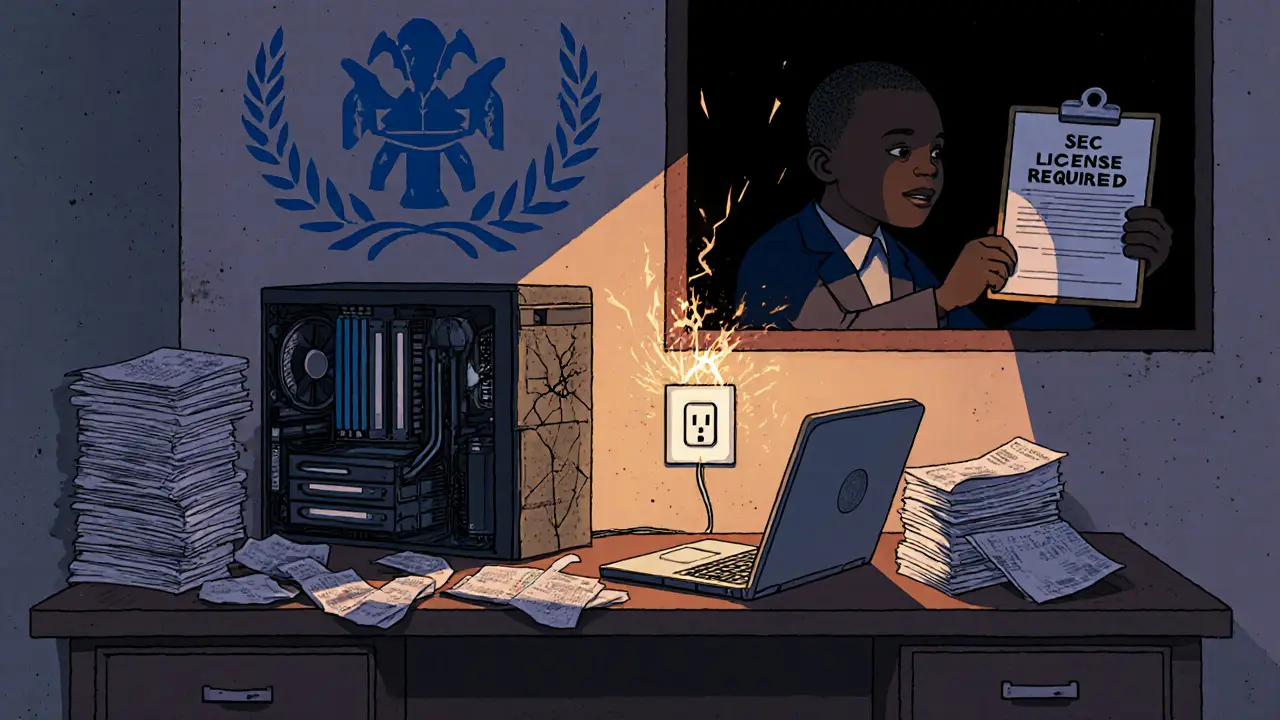Nigeria Crypto Regulations 2025: What’s Legal, What’s Not, and How It Affects You
When it comes to Nigeria crypto regulations 2025, the official rules governing how individuals and businesses can use, trade, and mine digital currencies in Nigeria. Also known as Nigerian cryptocurrency laws, these rules are not a total ban—but they’re far from friendly. Unlike China or Vietnam, Nigeria hasn’t outlawed crypto outright. But the Securities and Exchange Commission (SEC) Nigeria crypto, the government body that oversees financial markets and has taken a hard stance on unlicensed crypto platforms has made it clear: if you’re running a crypto business, you need a license—or you’re breaking the law.
For regular users, things are murkier. You can still buy Bitcoin or Ethereum on P2P platforms like Paxful or Binance P2P. But if you’re using an unlicensed exchange, your funds could be frozen. The SEC has cracked down on dozens of platforms since 2023, and users have lost access to millions. Crypto mining Nigeria, the process of validating transactions and earning crypto rewards using computer hardware isn’t illegal, but it’s nearly impossible for most people. Power outages last for days, electricity costs are high, and the SEC requires mining operations to register as formal businesses—something most individuals can’t afford. Even if you mine at home, you’re still required to report earnings to the tax authority, and failure to do so can mean fines or audits.
There’s no official ban on holding crypto, but the Central Bank of Nigeria still warns banks not to serve crypto businesses. That means you can’t easily cash out to your local bank account without raising red flags. And if you’re a business accepting crypto as payment? You’re playing with fire. The SEC doesn’t explicitly ban it, but they’ve fined companies for operating without licenses—and that includes crypto-related services.
What you’ll find below are real cases, not guesses. Posts cover how Nigerians are still trading crypto despite the risks, why mining is shrinking, what happens when the SEC freezes your wallet, and how people are adapting with P2P, stablecoins, and offshore accounts. You’ll also see how the cryptocurrency laws Nigeria, the legal framework governing digital asset use, taxation, and business operations in Nigeria are shaping everyday decisions—from buying Bitcoin to paying for services. This isn’t theory. These are the rules people live by in 2025. Whether you’re holding, trading, or mining, the next few pages will show you exactly where you stand—and how to protect yourself.
